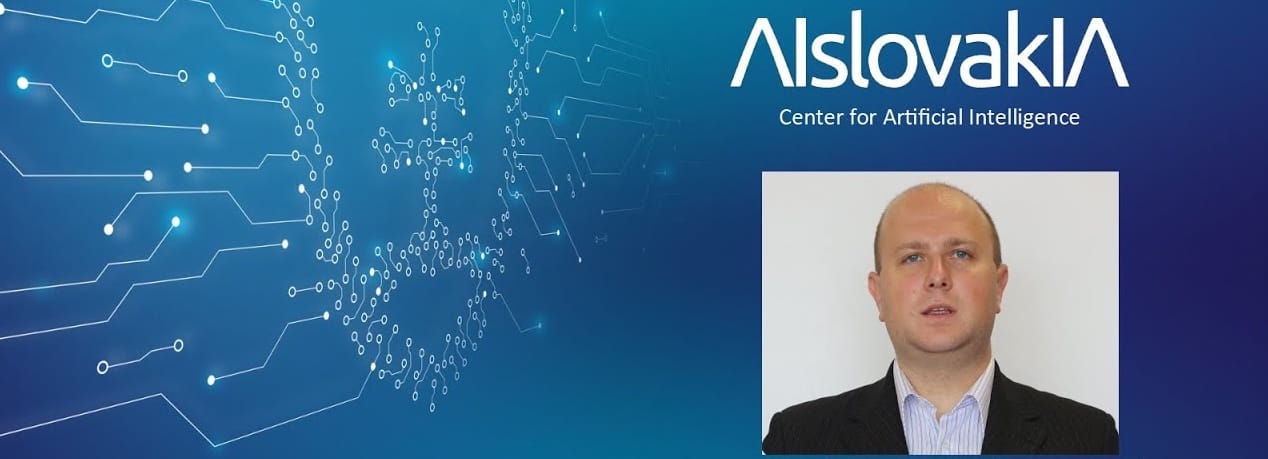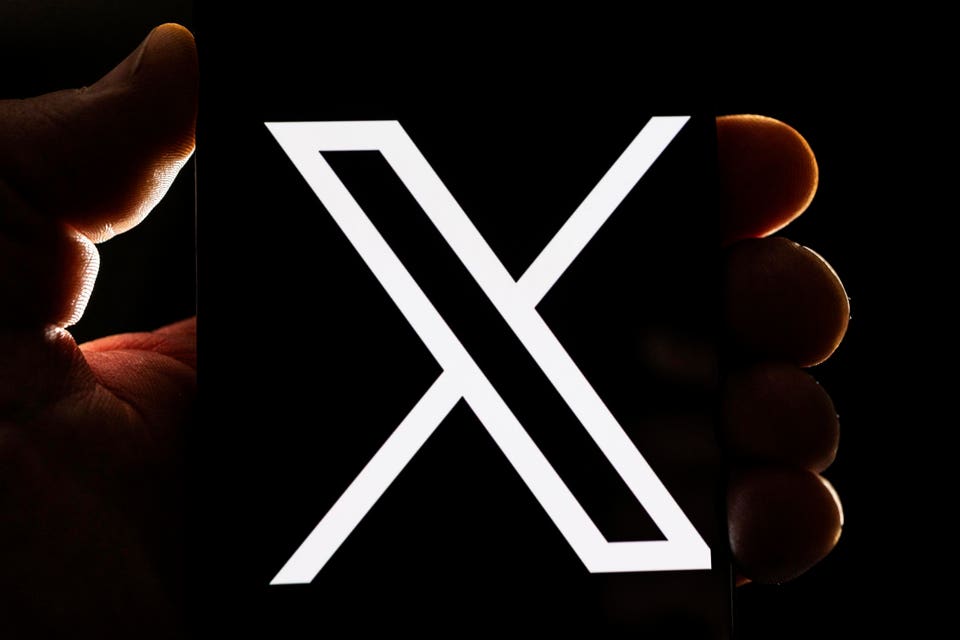Radovan Kavicky is an AI & Data Science Evangelist at AIslovakIA, the National platform for AI development in Slovakia, and President of the GapData Institute. The non-profit platform supported by the Slovak government aims to connect all players in the AI industry in Slovakia and use the full potential of Slovakia’s greatest minds to promote AI development in Slovakia.
Radovan completed his studies in Finance, so started as an Economist, but when you speak with him it’s clear that his real passion lies in Data Science & AI, especially as it relates to his home country of Slovakia.
In his presentation (available on his GitHub or directly @ https://tinyurl.com/slides-globalAIshow) at the Global AI Show in Dubai, Radovan presented some interesting projections of when we could expect strong AI, Human-level AI, and later AGI, or in other words the “holy grail” of all AI research.
He emphasized the growing need for implementing Explainable AI tools, open collaboration, and teaching machines our value system and rule of law to ensure AGI becomes everything we hope it will be (at least benevolent towards humanity).
Eugene van der Watt from DailyAI spoke with Radovan Kavicky about his views on current and future AI developments. Here are a few interesting highlights from the interview.
Q: Radovan, you were an advisor for the Prime Minister of the Slovak government on AI at one time. Can you tell us more about that?
Radovan Kavicky: “Yes, I worked for Iveta Radičová during the pro-democratic, pro-reform government back in 2010 till the government unfortunately fell in 2011 (btw. on my birthday). I was involved in various algorithms & AI implementations for various ministries, including the Ministry of Justice, working alongside my colleague from MESA 10 at that time, Martin Valentovič. We used AI and advanced data science tools in areas like justice, f.e. Calculating vectors of distances and optimizing the justice system network, and improving accessibility to justice across Slovakia.”
Q: Different governments around the world have taken varied approaches to AI regulation. What’s your feeling about the Slovakian approach? What route will be taken there as far as regulation?
Radovan Kavicky: “We within AIslovakIA are involved in the process of creating and on a regular basis updating the strategy for AI implementation in the public sector, also collaborating within Europe. Slovakia is a member of not only the EU or NATO but also the OECD, which has its own approach to transparency and regulation with the OECD AI Principles. Based on this, we are formulating also a common strategy within Europe.”
Radovan explained the EU’s approach to AI regulation through the AI Act, which focuses on risk assessment of AI implementations rather than regulating specific technologies. He believes this is a better approach compared to other countries and regions worldwide but what it lacks is a focus on regulating AI itself.
While Kavicky is optimistic about the benefits of AI, he doesn’t ignore the potential risks of AGI but emphasizes the importance of aligning AI with human values.
Q: You mentioned that OpenAI isn’t really open. What are your thoughts on that?
Radovan Kavicky: “I believe strongly in an open-source, open and academic approach for reaching these kinds of milestones leading towards strong AI, HLAI, AGI, or maybe even Superintelligence in coming years. OpenAI is currently only open in name… in fact it is one of the most closed and secretive organizations worldwide working in fact on reaching AGI (Chat GPT or GPT 4 is just a semi-product leading towards strong AI) and we have to prepare ourselves for changes that are coming with AGI because we are creating something that will overcome human intelligence. And this is not a joke. We are very close to this and we have only a decade, maybe even less/few years to get ready. If OpenAI reaches this I am really worried… because currently we can not even check academically their research or get to know based on what data they created GPT 4. This is not something that should be accepted.”
Referencing Sofia, an AI humanoid robot that was his co-keynote speaker at Global AI Show, Kavicky said, “Just check Sofia’s creator, Ben Goertzel, his vision of combining technologies like blockchain and LLMs, natural language processing and other technologies with decentralized approach end goal of maximizing benefit for humanity and global community is completely different to that of Sam Altman with end goal of maximizing profit for benefit of concrete company, Microsoft in this case. And I strongly believe in openness and the approach of Ben, not Sam.”
Kavicky stressed the need for an open-source approach to address potential risks.
Q: There are different opinions on AGI. Yann LeCun believes it’s a long way off and safety isn’t a worry, while Elon Musk believes it’s imminent and poses an existential risk. What do you think?
Radovan Kavicky: “I think we should really worry only if we do it badly, not in an open, transparent way, and if we implement it poorly this could really be the last creation of humanity. Again, no joke, this really can happen and there is a non-zero chance that it will happen. In order to avoid it we have to teach our value system to these machines, technologies, and models that we are creating and calling AI… and even if we will not be able to teach them our value system or laws… we should at least try to teach them empathy and respect for our laws and towards everything human.”
Q: Slovakia has produced some notable names in AI, like Andrej Karpathy. However, there’s also the challenge of brain drain. Are there opportunities in Slovakia for someone who wants to work on AI projects?
Radovan Kavicky: “There are opportunities and the AI industry is growing rapidly, but we’ve never had an AI unicorn yet directly within Slovakia. Of course, we have the talent (thankfully it is distributed globally), but we’re not able to hold onto this talent due to better conditions in other countries, limitations in our legislation, like no possibility to patent an algorithm, and also the global nature of the AI industry.”
Kavicky explained that the Slovakian government and industry need to change their mindset to retain AI talent and benefit, rather than suffer, at the hands of inevitable AI automation that is coming, and his region/CEE/Central and Eastern Europe will be hit hardest (if we believe the predictions).
He expressed skepticism about blockchain but acknowledged the expertise of Ben Goertzel and Marek Rosa from GoodAI who are working on reaching AGI as soon as possible and integrating AI but also technologies like blockchain in their pursuit of AGI.
Q: Do you see blockchain, DeFi, and things like that becoming a bigger deal with AI in the future?
Radovan Kavicky: “Yes, but to put it into perspective…I see blockchain as technically just a very slow database. For me, blockchain may not be the right way forward…but maybe I’m wrong… who knows… either way another technology similar to blockchain could be the missing link to…resolve the problem of storage in order to reach Strong AI and hopefully AGI…I think that something even better than blockchain is coming. Very soon.”
Kavicky is excited about developments in artificial neural nets but he also says they are very different from our human brains, and in fact even better in some ways.
“I’m not sure that we all fully understand that we are playing with very dangerous technologies. We really have to have a deep understanding of these technologies and understand them mathematically and have a deep understanding also how they are making decisions. We should really return back to basics and the era when AI was a multidisciplinary area of science… to basically learn how these models are learning.”
Kavicky stressed the need for the AI industry to be more open and collaborative to achieve these advances safely.
“The future is absolutely awesome, but it’s up to us now how we will build it….and the vision of Sam Altman or others like him… I don’t think this vision is the right way forward. We should at least stop for a while, accept the reality that in coming years, we, the humans, will no longer be the smartest animals or smartest entity on this planet… and really ask ourselves what this means… for the whole of humanity and this world that we created.
Some say that we are at the beginning of the end of humanity… I don’t think so. We are at the beginning of the beginning. What is ahead of us is the ultimate test of our own intelligence. The ability to adapt is one of the definitions of intelligence.
And don’t forget that it always was “adapt or die”. In other words… at some point, we will probably have to merge with the technology that we are now creating in order to stay competitive (just for a second imagine the world where AI, our creation, based on our data, is better in everything… and this point in human history is coming sooner than you expect).
The human-machine (or AI if you please) interface or also the ability to store our own consciousness on machines & switch between machines, f.e. cloud is not working yet, but these technologies are also coming. What would you do and how would you decide (if you have the ability to “live forever” or merge with AI)?
I don’t have the answer for you here… I know only what I would do… I will be the first in the line if this will be working and I would gladly take the chance to overcome the current limitations of humanity. We are and still remain humans. It’s simply in our nature & always has been to push boundaries & reinvent ourselves.”
You can find out more about Kavicky’s work in AI and Data Science at AIslovakIA and the GapData Institute.





